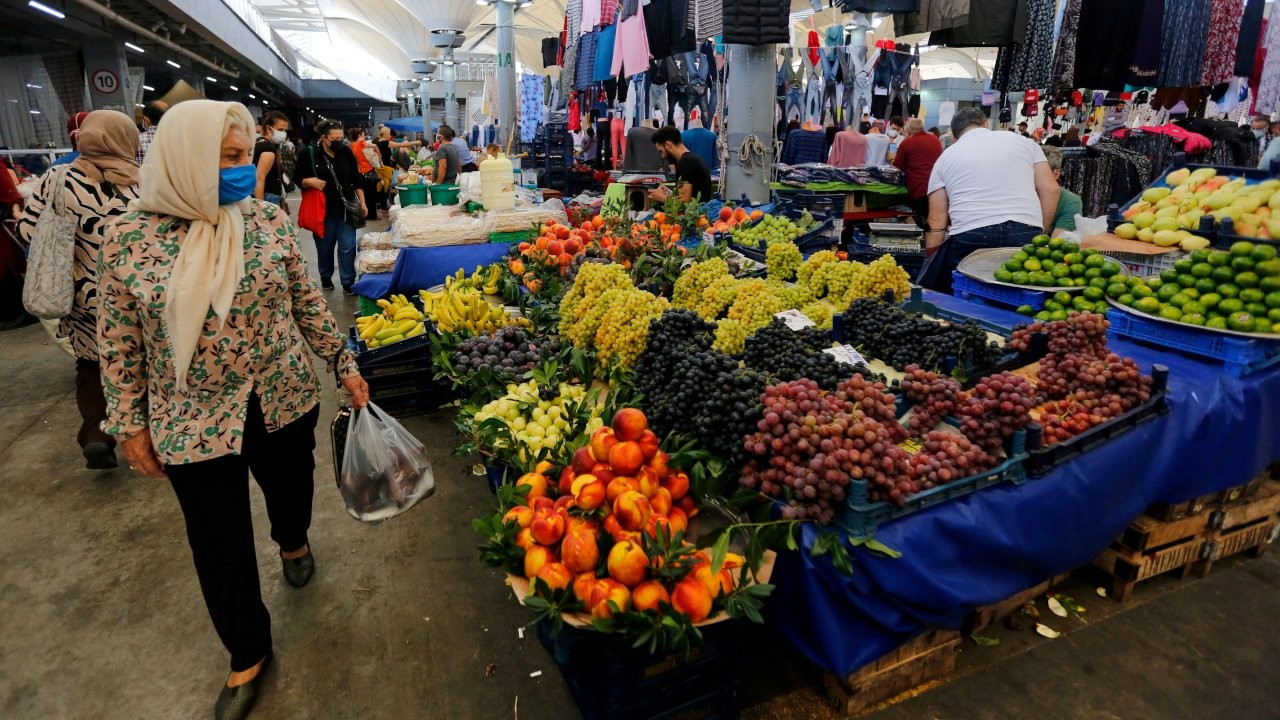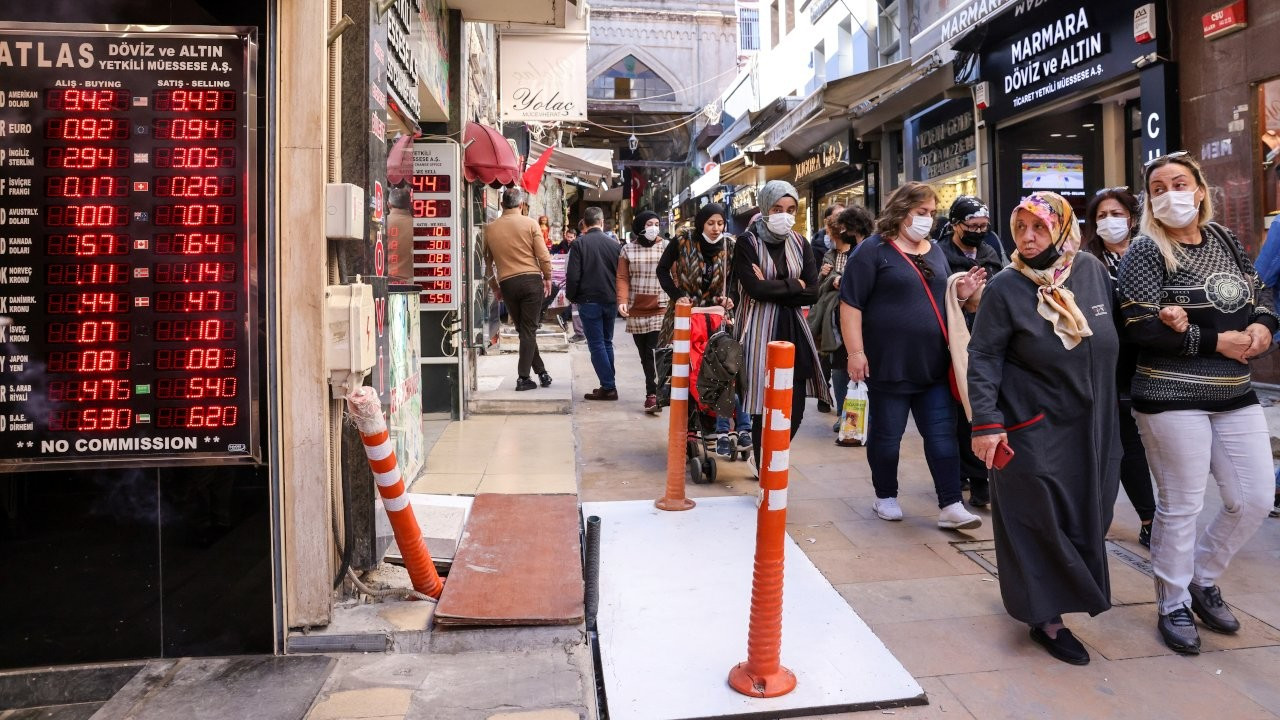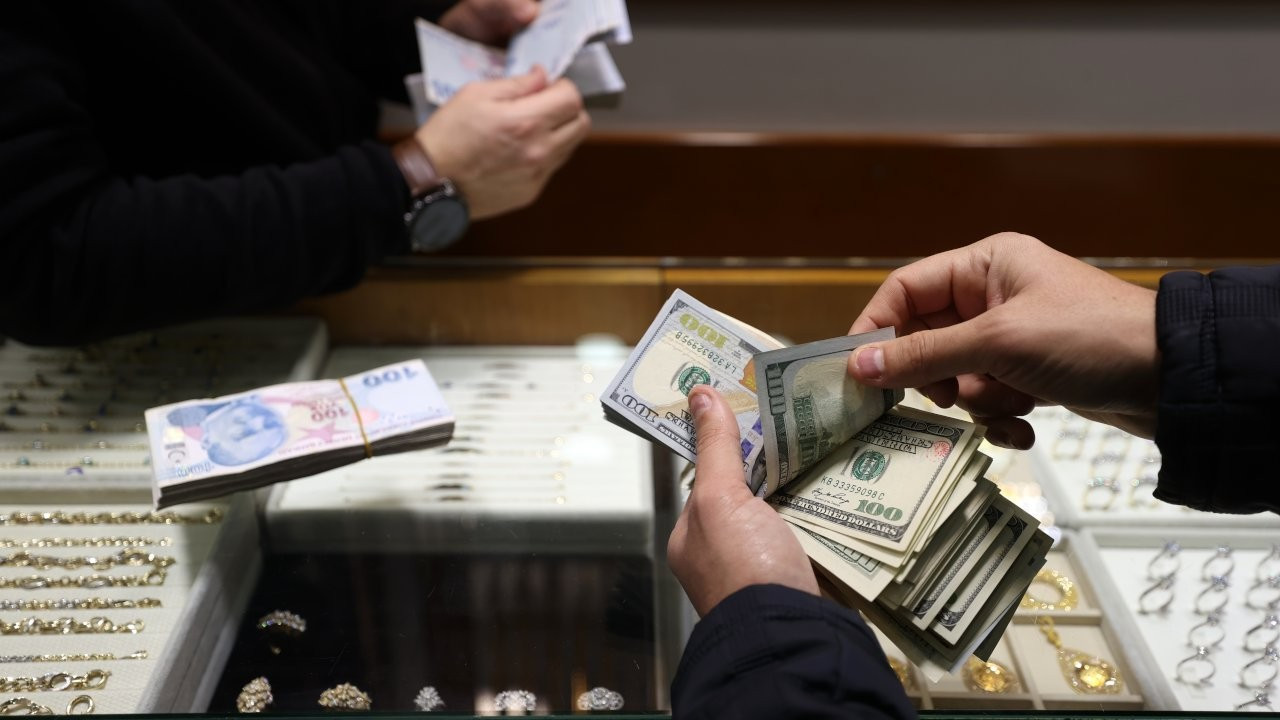Turkish lira continues to crash amid concerns of soaring inflation, unorthodox monetary policy
Turkey's lira continued to tumble on Jan. 3 amid concerns of soaring inflation and the central bank's unorthodox monetary policy. According to official figures released by the government-run Turkish Statistical Institute (TÜİK) on Jan. 3, the country's annual inflation rate rose to its highest in two decades in December, reaching 36.08%.
Duvar English - Reuters
Turkey's lira tumbled 5% on Jan. 3 after suffering in 2021 its worst year since President Recep Tayyip Erdoğan came to power nearly two decades ago, with concern persisting over surging inflation and unorthodox monetary policy.
The lira weakened as far as 13.92 against the dollar from a close of 13.1875 on Jan. 31.
The lira was by far the worst performer in emerging markets in 2021, as well as in the last few years, and lost 44% of its value against the U.S. currency over the year. It weakened 19% last week alone.
The central bank has slashed its policy rate by 500 basis points since September, under pressure from Erdoğan as he pushed a "new economic program" focused on credit and exports despite the lira's collapse and rising inflation.
To curb the lira weakness, Erdoğan unveiled a scheme three weeks ago in which the state protects converted local deposits from losses versus hard currencies, sparking a sharp 50% rally in the lira with support from the central bank.
But the lira then sank again last week, prompting a call on Jan. 31 from Erdoğan - whose opinion poll ratings are sliding ahead of an election in 2023 - for Turks to keep all their savings in lira and shift gold into banks.
Meanwhile, the government-run Turkish Statistical Institute (TÜİK) on Jan. 3 reported an annual inflation rate of 36.1 percent in December, the highest in two decades, whereas the independent inflation group ENAG put the figure at 82.8 percent.

 Turkey reports annual inflation of 36 percent, highest in two decadesEconomy
Turkey reports annual inflation of 36 percent, highest in two decadesEconomy Inflation rate above 40 percent awaits Turkey in 2022, says renowned economistEconomy
Inflation rate above 40 percent awaits Turkey in 2022, says renowned economistEconomy Erdoğan calls on citizens to keep all savings in lira as currency remains volatileEconomy
Erdoğan calls on citizens to keep all savings in lira as currency remains volatileEconomy Turkish lira erodes last week's gainsEconomy
Turkish lira erodes last week's gainsEconomy